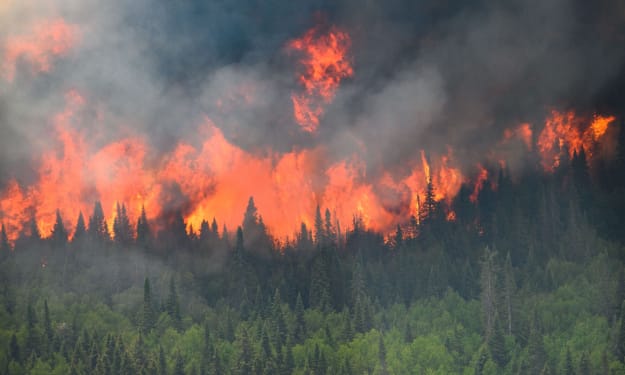
In a recent development, President Biden has made a significant announcement, declaring a ban on all imports of Russian oil, gas, and energy resources. This decision comes amid the ongoing conflict in Ukraine and has raised concerns about the supply chain of nuclear fuel, which is vital for the future of nuclear power in the United States.
The invasion of Ukraine prompted the United States and several other nations to impose sanctions on Russia, targeting energy resources such as oil and gas. However, uranium, a crucial component of nuclear energy, has not been subjected to these sanctions.
Justine Calma, a science reporter at "The Verge," shed light on the complex issue of U.S. dependence on Russian uranium. Calma explained that while the U.S. can easily reduce its reliance on Russian oil and gas, it has struggled to do the same with uranium. This is primarily because a significant portion of the U.S. uranium supply comes from Russia.
Uranium is a key nuclear fuel due to its isotope, U-235, which is readily fissionable, yielding substantial energy. Nuclear power, although a subject of ongoing debate, accounts for roughly half of the carbon-free electricity generated in the United States. The Biden administration is currently making substantial investments in nuclear energy to meet the nation's climate objectives, underscoring the importance of uranium in this context.
Natural uranium, as it is extracted from the ground, contains low levels of U-235. To be suitable for nuclear fuel, uranium must undergo a conversion and enrichment process, involving mining, conversion into yellowcake, conversion into a gas, enrichment to increase U-235 concentrations, and fabrication into fuel rods. This intricate process is outsourced to various companies, with only a handful of countries possessing the capability, including France, Russia, and China.
The entire uranium supply chain presents security concerns, as enriched uranium can serve both civilian and military purposes. The demand for enriched uranium is growing as some governments prioritize nuclear power as an alternative to fossil fuels. Hence, the supply chain's vulnerabilities have been exposed by the Russia-Ukraine conflict.
One potential solution to this issue is the establishment of a strategic uranium reserve, essentially a stockpile of uranium for emergency use in the event of protracted conflicts. However, building next-generation nuclear reactors, which require higher U-235 concentrations for efficiency and cost reduction, is also at risk due to the war.
Currently, Russia is the sole commercial producer of this next-generation fuel, putting the United States in a challenging position. Although the U.S. is working on its production facility, achieving uranium independence will take considerable time.
Given these challenges, some argue that the U.S. should consider restarting uranium mining. However, this proposal raises environmental concerns, as past uranium mining in the Western U.S. left a legacy of toxic waste and contamination. Indigenous tribes have also voiced objections to mining on or near their lands, citing the health risks associated with uranium contamination.
The nuclear power debate goes beyond mining issues, encompassing the storage of radioactive waste and the risk of meltdowns. President Biden has set an ambitious goal of achieving 100% carbon-free energy by 2035, with nuclear power playing a role. Therefore, the debate surrounding nuclear energy is likely to intensify as the world grapples with the urgent challenge of addressing climate change.
Advocates for expanding nuclear energy argue that in the face of the climate crisis, options are limited, and nuclear power offers a viable path towards carbon-free energy, albeit not without its drawbacks.






Comments
Polunio is not accepting comments at the moment
Want to show your support? Send them a one-off tip.